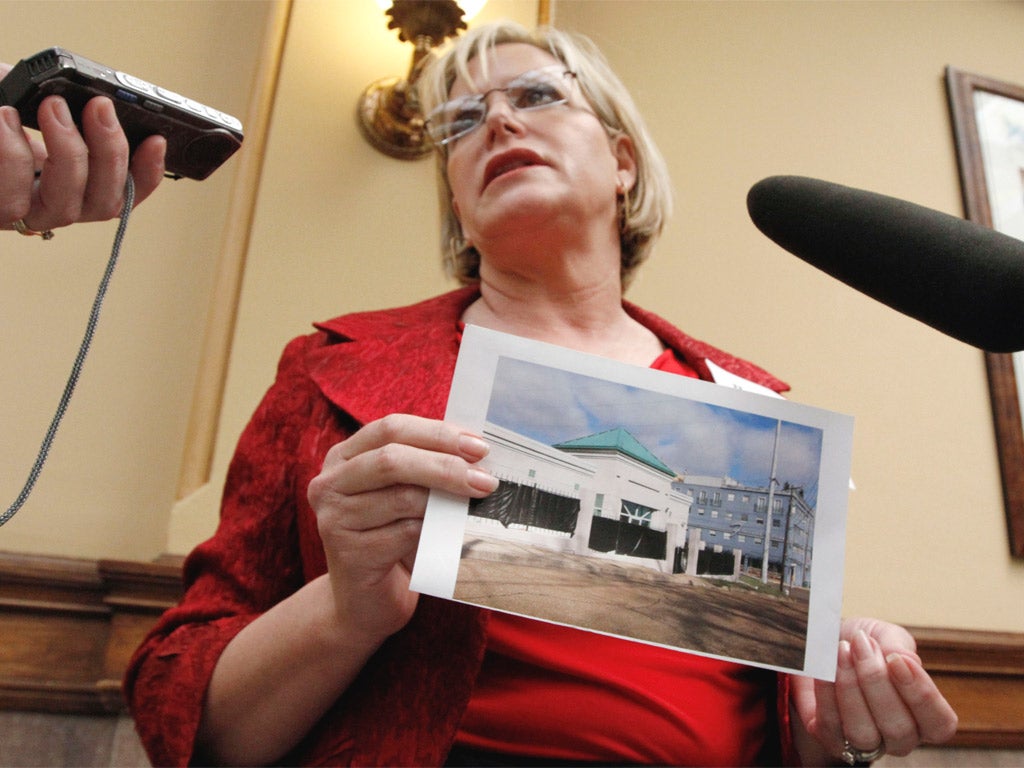Mississippi law may force its last surviving abortion clinic to shut
Republican bill could end abortions in state, despite 1973 Roe v Wade Supreme Court ruling

Your support helps us to tell the story
From reproductive rights to climate change to Big Tech, The Independent is on the ground when the story is developing. Whether it's investigating the financials of Elon Musk's pro-Trump PAC or producing our latest documentary, 'The A Word', which shines a light on the American women fighting for reproductive rights, we know how important it is to parse out the facts from the messaging.
At such a critical moment in US history, we need reporters on the ground. Your donation allows us to keep sending journalists to speak to both sides of the story.
The Independent is trusted by Americans across the entire political spectrum. And unlike many other quality news outlets, we choose not to lock Americans out of our reporting and analysis with paywalls. We believe quality journalism should be available to everyone, paid for by those who can afford it.
Your support makes all the difference.Mississippi has become the latest Republican-run US state to bring in tough new anti-abortion legislation, which could shut down its one remaining clinic offering the procedure and thus effectively end abortions in the state.
Signing the measure this week, Governor Phil Bryant called it a major step to "ensure the lives of the born and unborn are protected". For pro-choice advocates however, the step directly threatens a woman's basic right to an abortion, enshrined in the US Supreme Court's historic Roe v. Wade ruling of 1973.
Under Mississippi's new law, all doctors at abortion clinics must be state-registered obstetrician-gynaecologists, who can send a patient to a local hospital in the event of complications. But almost all the physicians at the clinic, in the capital Jackson, are from outside Mississippi and its owner, Diane Derzis, warned last week if the law went into effect, the clinic could be forced to close.
Mississippi's move is further proof that 40 years after the landmark Supreme Court decision, abortion is as polarising an issue as ever, and one set to feature in November's election that pits a Democratic president committed to abortion rights against near-certain Republican nominee Mitt Romney, who has called for Roe v. Wade to be overturned.
Roe v. Wade's fate of course depends not on the politicians, but on the country's highest court. However the latter has turned markedly to the right over the last few decades. Although the conservative majority of justices has stopped short of overturning the 1973 ruling, based on the right of privacy contained in the US Constitution, a string of narrower rulings have chipped at its edges.
Last week, Arizona became the seventh state since 2010 to pass a measure all but outlawing abortions after 20 weeks, based on the five-month "fetal pain" principle. According to Arizona governor Jan Brewer, the Women's Health and Safety Act, "recognises the precious life of the pre-born baby".
Proponents insist the 20-week cut-off point does not apply in medical emergencies, but according to the pro-choice Center for Reproductive Rights, women at risk of complications "will be forced to decide whether to proceed with their pregnancies in the dark, before they have the information they need".
In a separate move to make an abortion more difficult, Virginia last month passed a law requiring women to have an ultrasound before the procedure. Governor Bob McDonnell rejected a first version of the bill that mandated a transvaginal ultrasound, amid an outcry the procedure violated womens' rights.
Mr McDonnell, who has been mentioned as a possible vice-presidential candidate for 2012, is pro-life. But he is also aware how the party's rigid stance on abortion and birth control, is costing it dear among women voters, who favour Mr Obama by a 55-39 margin, says a poll yesterday.
Both Mississippi and Virginia were also in the forefront of the "personhood" challenge to abortion, based on the premise that life begins not at birth but conception, and that a fertilised egg is legally a human being. The notion was rejected by Mississippi in a 2011 referendum, but Virginia's legislature approved a personhood bill this year. However it is on hold until 2013, after the election in which Virginia will be a vital swing state.
Join our commenting forum
Join thought-provoking conversations, follow other Independent readers and see their replies
Comments